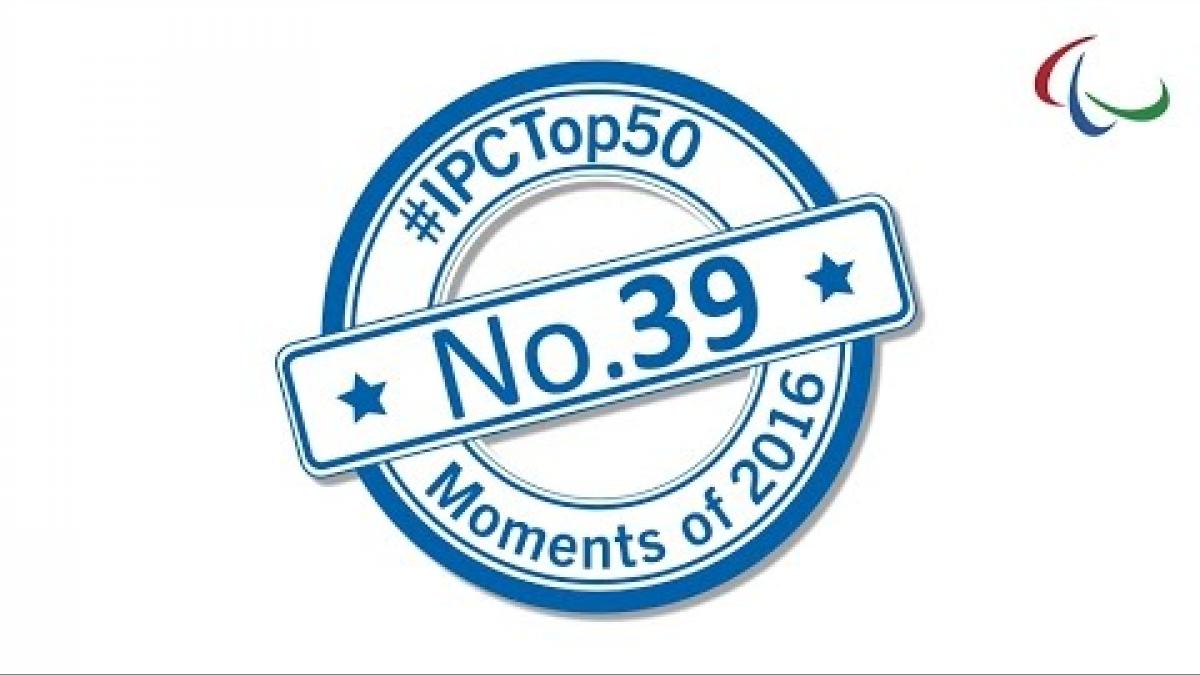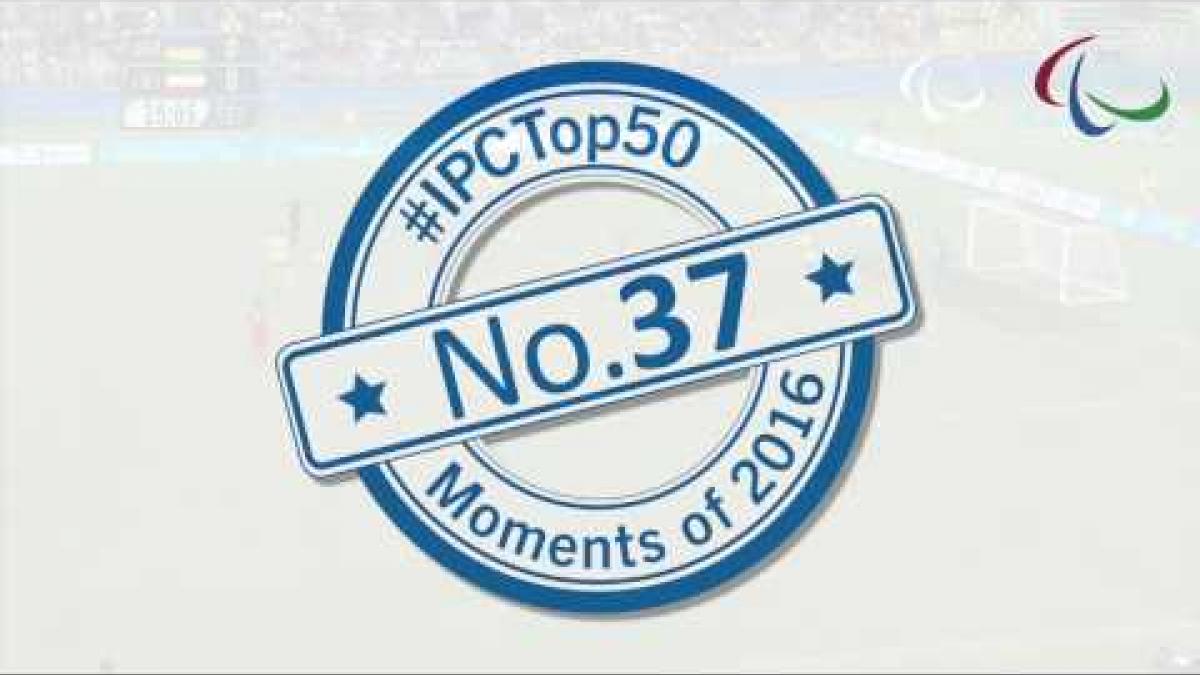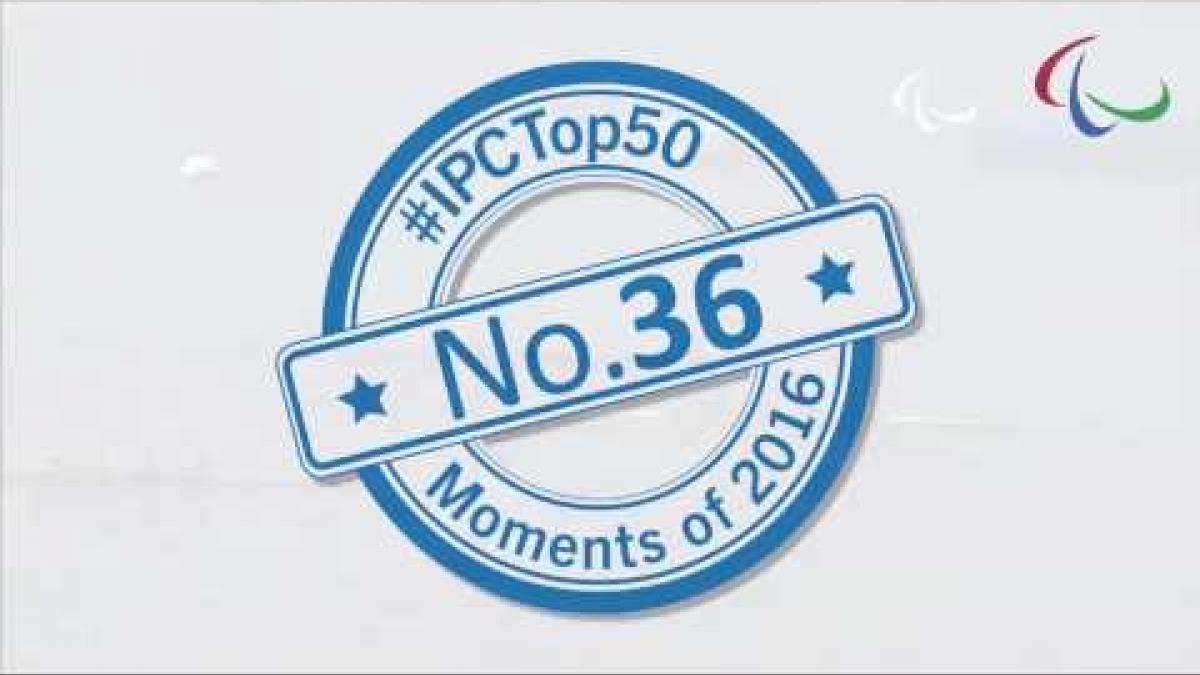No.35: Dutch-British equestrian rivalry
Great Britain lost to the Dutch riders at last year’s Europeans but bounced back to top the sport’s medals table at the Rio Paralympics. 27 Nov 2016Great Britain came top in the Rio 2016 equestrian medals table after winning seven golds and four silvers, but in the run-up to Latin America’s first Paralympic Games there was a feeling their dominance could be challenged by the surging Dutch team, who defeated them at last year’s Europeans.
The Dutch-British rivalry in equestrian makes it No. 35 in the International Paralympic Committee’s (IPC) Top 50 Moments.
Since its Paralympic debut at Atlanta 1996, the British team had yet to lose the team title, and had always topped the medals table at European and World Championships. But the team’s superiority in the sport had taken a few significant knocks in the years leading up to Rio 2016 as other countries, particularly the Netherlands, began to catch up.
At the Alltech FEI World Equestrian Game in 2014, for example, the Netherlands’ Rixt Van der Horst won both the grade II individual and freestyle titles in her major international debut, beating London 2012 champion Natasha Baker. In the grade III event, compatriot Sanne Voets took the freestyle title.
Van der Horst repeated her clean sweep of grade II titles at last year’s FEI European Championships, whilst teammate Frank Hosmar won his first international golds in the grade IV. For the first time in a major competition, the British team, despite retaining the overall team title, failed to top the medals table. The stage was set for a mouth-watering competition in Rio.
And what a competition it was. Both teams produced their best results at a Paralympic Games but, this time, it was the British who reigned supreme. They took the team title by a massive 20 points ahead of silver medallists Germany and the Netherlands who picked up bronze.
British riders also secured six individual golds and four silvers. “We wanted to come out and retain the title but our objective was for everybody to achieve their personal bests and we did that. They delivered phenomenal performances,” said Chef D’equipe Sarah Armstrong.
“Since London everybody has upped their game and we were very aware of other countries who are delivering sterling performances. We keep looking for the tiny little improvements that can make a difference and that has been our focus.”
The Netherlands, however, were never far behind, especially in the individual competition. The team took home an impressive seven medals including freestyle gold through Sanne Voets.
Van der Horst came agonisingly close to gold too, finishing the grade II freestyle just behind Great Britain’s Natasha Baker, who retained both her London 2012 titles and won a team gold as well. Compatriot Sophie Christiansen also secured a hat-trick of titles after retaining both her London golds and winning a team title.
“My goal for this year was to win the gold medal at Rio 2016,” said Van der Horst.
“When I saw Natasha (Baker) perform in the freestyle I was so nervous. I knew my dream could come true that day. At first I was disappointed, it was so close. But now I am so happy with my silver and my two bronzes.”
The Netherlands’ Chef D’equipe Joyce Heuitink added: “My team had a great event. All five riders came home with at least one medal and compared with the two medals of London 2012, the seven we won in Rio made it the best Paralympics in history for our country.”
To find out more about the IPC’s Top 50 Moments of 2016, visit the dedicated page on the IPC’s website.

 Facebook
Facebook
 Instagram
Instagram
 Twitter
Twitter
 Youtube
Youtube
 TikTok
TikTok
 Newsletter Subscribe
Newsletter Subscribe





